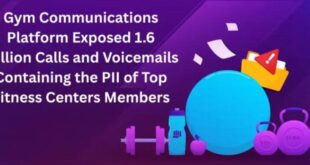After a Twitter engineer posted photos of an Android dashboard showing his WhatsApp microphone being used while he slept, Elon Musk declared that WhatsApp could not be trusted.
A developer for Twitter named Foad Dabiri said that while he was sleeping, the instant messaging app had been using his microphone in the background. According to the screenshot, WhatsApp accessed his microphone in the background from 4 am to 7 am.
Dabiri wrote on Twitter, “WhatsApp has been using the microphone in the background, while I was asleep and since I woke up at 6AM (and that’s just a part of the timeline!) What’s going on?”
Reports say Dabiri seems to have found the problem using the Android 12 privacy dashboard, which allows identifying and limiting an app’s ability to access specific hardware features.
Response from Elon Musk: “WhatsApp cannot be trusted”
Musk, the owner of Twitter, responded by writing: “WhatsApp cannot be trusted,” which led other users to write back by declaring they had deleted the app.
The fact that Meta owns the chat service raises questions about microphone access. WhatsApp claims that the controversy is a misunderstanding.
Even yet, Musk’s remark might damage WhatsApp’s reputation, given that it wouldn’t be the first time he has disparaged the secure messaging service.
Musk urged users to switch to the competing messaging service Signal in 2021 after WhatsApp revealed a new privacy policy outlining how it can share user data with Facebook.
After receiving criticism from the public, WhatsApp delayed the policy modification a week later.
An Android Bug Was the Cause of The Problem
“We believe this is a bug on Android that mis-attributes information in their Privacy Dashboard and have asked Google to investigate and remediate,” WhatsApp said in its tweet.
Furthermore, WhatsApp emphasizes that all phone calls and user communications are still end-to-end encrypted on the platform. This means that unless someone has access to the user’s smartphone, nobody—not even WhatsApp itself—can decrypt voice call data.
WhatsApp added, “Once granted permission, WhatsApp only accesses the mic when a user is making a call or recording a voice note or video—and even then, these communications are protected by end-to-end encryption so WhatsApp cannot hear them”.
Notably, Musk’s platform, Twitter, aims to one day compete with WhatsApp by developing it into a “super” app capable of social media, personal messaging, and banking. This will entail providing phone calls and end-to-end encryption for direct communications.
Musk’s tweet read, “With latest version of app, you can DM reply to any message in the thread (not just most recent) and use any emoji reaction. Release of encrypted DMs V1.0 should happen tomorrow. This will grow in sophistication rapidly. The acid test is that I could not see your DMs even if there was a gun to my head. Coming soon will be voice and video chat from your handle to anyone on this platform, so you can talk to people anywhere in the world without giving them your phone number.”
Source: gbhacker
 InfoSecBulletin Cybersecurity for mankind
InfoSecBulletin Cybersecurity for mankind














